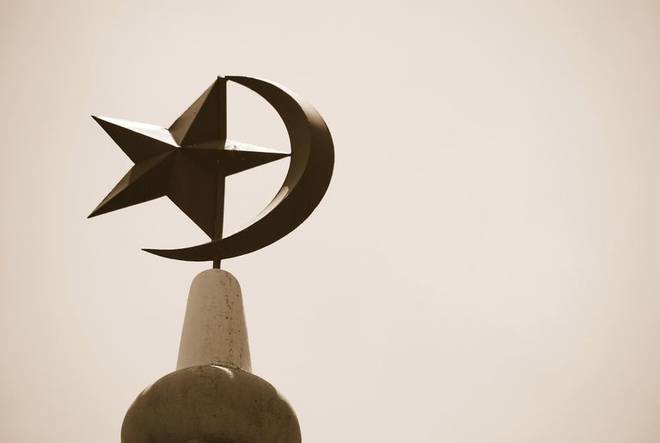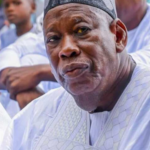
As if on cue, after the Jihad Narratives Retreat that I reported on this Column last week, I had occasion to also attend the Annual Shura Meeting of the Supreme Council on Shari’ah in Nigeria (SCSN) whose President, Dr. Ibrahim Datti Ahmad was some years ago the subject of many articles on this very page. For reminders, during the height of the Boko Haram crisis, it was revealed that Dr. Ahmad was one of the very few Muslim leaders the Jama’a were willing to negotiate with, being that its founder Muhammad Yusuf had great respect for the SCSN and its President. This Column had then urged Dr. Ahmad to accept the task, but his effort and those of others were frustrated by the then government. Below are excerpts of Dr. Ahmad’s Speech titled “Muslims, Politics and Democracy in Nigeria: The Pains and the Gains” at the occasion.
As you will no doubt recall, from the beginning the cardinal focus upon which our Council was founded has been the unity of the Ummah, and the defence of the legitimate rights and interests of Islam and Muslims in our country. We have remained the main umbrella Muslim organisation bringing together several groups across the country, and a rallying point of all the main organizations and Muslim leaders to ensure good governance and justice to all, of course with emphasis on redressing persisting issues of injustices to Muslims.
Despite our humble achievements, the set objectives of the Council are yet to be fully realized. Consequently, considering the huge challenges the Ummah is facing in the country, it is apparent that a more concerted collective effort would have to be taken. There is therefore the urgent demand to evaluate and re-strategize on the means and methods to adopt in addressing the numerous challenges holistically, and other emerging trends in our ever-changing society.
Since the return of democracy in 1999, and the effort to re-introduce the Shari’ah legal system in some states, a lot has happened that impacted both negatively and positively on the Ummah. This year’s meeting is geared towards x-raying the strengths and weaknesses of the Muslims under the current Muslim leadership, the politics, the pains and gains; identify mistakes and discuss on the way forward for Islam and Muslims in Nigeria.
As early as 2001 after the establishment of the Council, we realized the need to actively get involved in national politics altruistically, to facilitate the emergence of credible Muslim leaders who will at least ensure fairness and, hopefully, through a practical demonstration of the noble attributes and good manners Islam teaches, regain the respect and awe Muslims once had in the recent past in Nigeria.
Sadly, the Council’s indefatigable effort of reviving national Islamic brotherhood is being threatened by the selfish interests of our Muslim politicians. The Council foresaw this and advised the present leadership before inauguration in writing and in series of follow-up discussions afterwards.
This is quite unlike the last two Christian Presidents, Obasanjo and Goodluck Jonathan, both of whom were proud to stamp their Christian faith daily, in everything they did, from daily morning church services to frequent trips with their clerics on faith-renewal pilgrimages. In fact, a few years ago during the Presidency of Goodluck Jonathan, many important Federal Government Policies were announced during church services. In fact, they were not ashamed to identify, fraternize with and seek the advice of CAN openly and granted them unlimited access, patronage and empowerment.
We are therefore using this opportunity to remind our Muslim leaders of our collective role as important stakeholders, and the indisputable fact that the Ulama and Islamic organisations are indispensable partners in any serious effort to establish public good, morality and order in our society. We believe it is now clear to all that regarding all matters of governance and propriety in the conduct of the affairs of the nation as the exclusive preserve of politicians is a grave mistake.
We are also appealing to the current regime to change its attitude towards the concerns of the Ummah, by opening its shut doors. Let us be very clear here, that we are not seeking for any undue advantage, rather as major stakeholders, all we are asking for is advisory participation in the interest of the Muslim majority that elected the government. A few examples are the rehabilitation of IDPs and the containment of an even greater challenge to Islam, the Shi’a.
The Council has been engaging successive governments since 2000, to the full knowledge and support of our present leaders, but unfortunately it is still persisting with no serious effort being made to redress it. It is most frustrating and disappointing that the imperative need to redress the grossly disproportionate representation or marginaisation of Muslims has not received any serious attention by the new government.
This is despite the fact that Muslims have been at the forefront of the clamour for change, essentially because successive leaders since 1999 have not been fair to us. Let me reiterate here, once again, that Muslims are not asking for any favours, undue preference or advantage. On the contrary, we are only desperately seeking for justice and fairness in addressing the deliberate progressive marginisation of Muslims in all spheres of key public services.
As 2019 election approaches, non-Muslims from all parts of the country appear poised to exploit the herdsmen/farmers clashes to cause disharmony and even the dismemberment of the country. We should rise up to this challenge by engaging the authorities as a united front to take practical steps to resolve this lingering issue without further delay.
As indicated earlier, the problem of the growing strength of the Shi’a is yet another serious problem which has serious destabilizing potential to the Ummah and constitute a real national security threat to peace and public order. The most frightening aspect which is capable of disrupting the Ummah is their penchant in abusing and denigrating the companions and wives of our Noble Prophet, upon whom be peace.
Muslim leaders and organizations should not repeat the same mistake as in the case of Boko Haram, by leaving all matters with the government. We should always remember that politicians’ actions are dictated by political expediency, and with elections 12 months away, they can relegate even the most important issues or delay taking difficult decisions that could affect their political fortunes.
While we praise Allah and commend the government for some successes in dealing with the Boko Haram insurgency and generally a relative peace from 2015, we will like to draw attention that in many other areas, things are not good. Millions are facing excruciating poverty, hunger, and unemployment, a situation which has brought about frustrations and disillusionment. We therefore urge the Federal Government to take urgent remedial steps to alleviate the hardship.
We should, also, as we have been doing, constructively engage our Muslim politicians on the need to imbibe the fear of Allah and be just and fair to all. They should not only protect our legitimate rights, but also promote and project a good image of Islam practically. As we keep repeating that as Muslims, we do not require any preferential treatment but demand a leadership with courage to uphold justice and ensure fairness to all, with the political will to redress longstanding issues of injustice and marginalization. This is necessary because there can never be lasting peace without justice.
Finally, while we call on all Muslims to meticulously stick to the teachings of Islam on peace, justice, compassion and uphold the truth, and take deliberate steps to further cement our unity. As long as we are united in faith, we shall in sha Allah overcome all our challenges.




